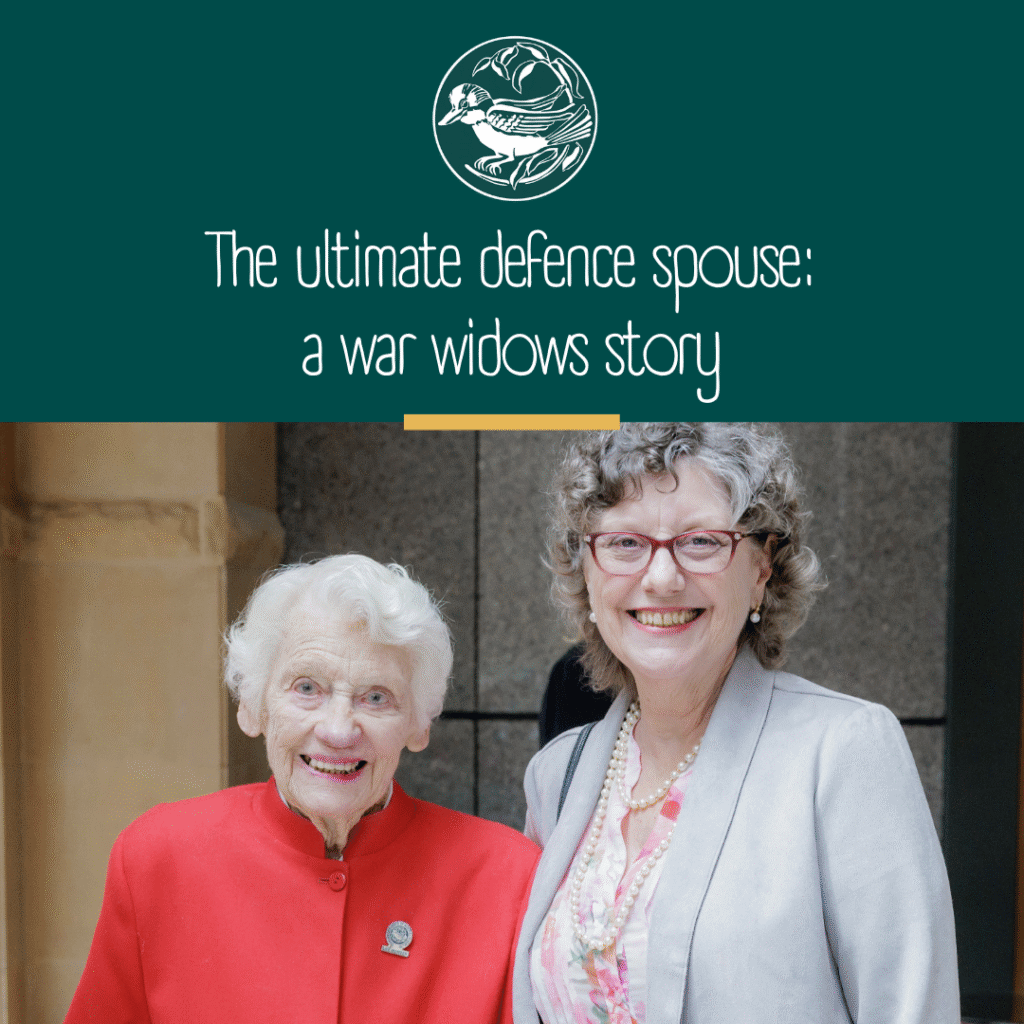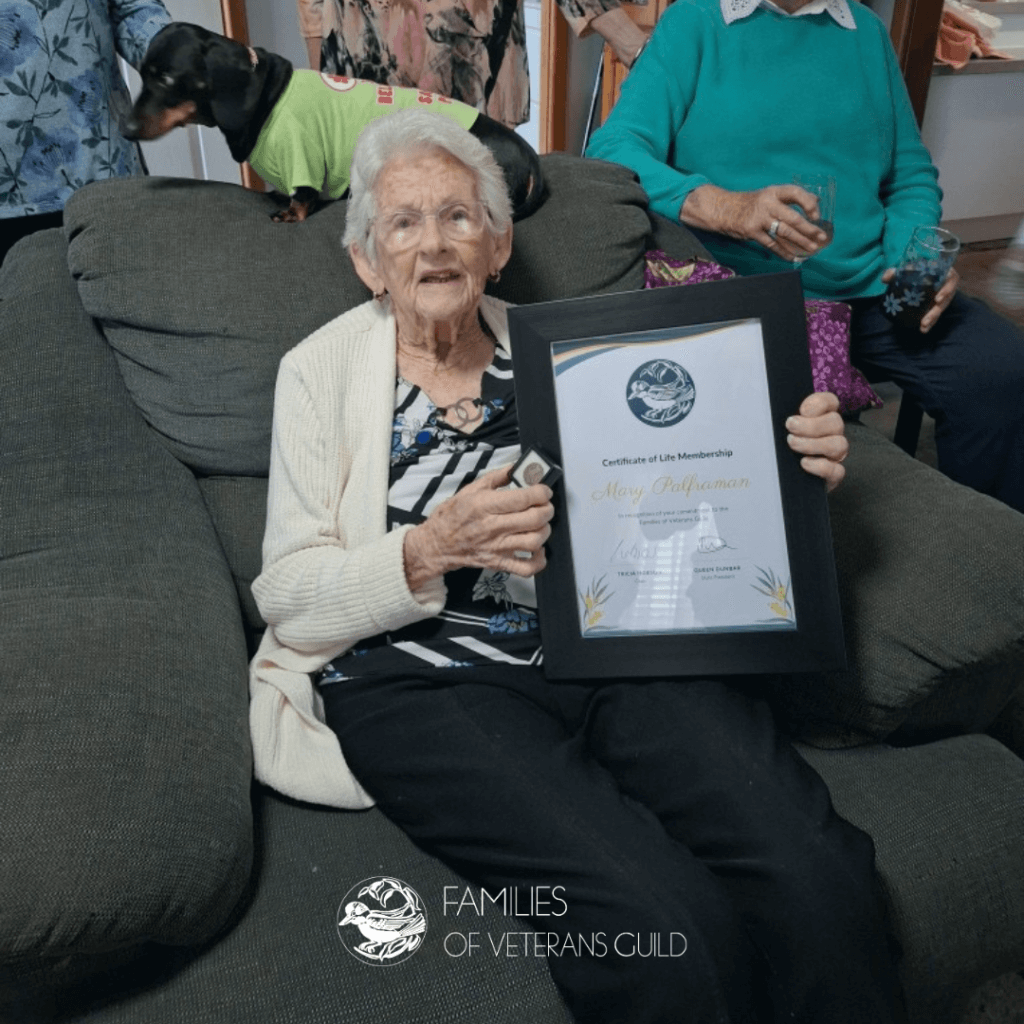Losing a partner is a grief that never truly leaves, it simply changes shape over time. But Margaret, a war widow, has shown that even with grief, nothing can stop you from living your life to the fullest and giving everything a go. In 2023, a current serving partner met with Margaret and shared with us how Margaret’s approach to life’s difficulties was able to shift her perspective as a defence partner.
‘My meeting with Margaret’
There is a cruel irony to life, as it often does not allow us to speak with our grandparents when we are old enough to listen and wise enough to ask the right questions – or vice versa. As we go through life, most of us come to wish our grandparents were still with us to answer important questions about life and help us get the perspective we need when everything seems to be falling apart.
When going through challenging times, we shall find comfort in the stories of others: reminders that things will get better, in time. The most inspiring stories I have heard are those of older generations. They went through hardship I don’t believe I could handle; yet, they probably thought the same about themselves. Like Eleanor Roosevelt supposedly once said, “A woman is like a tea bag, you never know how strong she is until you put her in hot water”.
Margaret does not claim to know the secret to a long life, but she might hold the secret to living your best life. A secret she might share with those wise enough to ask the right questions or wise enough to listen. A secret veterans’ spouses, like me, might need to hear at some point in their journey.
When I interviewed Margaret, she was about to turn 103 and I had just moved to Sydney with my partner who serves in the Navy. I was in awe listening to anecdotes and stories about her life and the people Margaret has come to know during her long life. Her stories about other war widows, neighbours and friends were as loving as if she were talking about her family. I truly understood then what the War Widows motto means: ‘We all belong to each other, we all need each other’. Although I have never been through what Margaret has gone through, I found comfort then, sitting in her dining room, that somehow I belong to this community.
The ultimate defence spouse
Margaret seems to approach life’s difficulties, problems and traumas with a “nothing you can do about it” attitude, adding the right dose of “giving everything a go”. With this recipe, she holds the secret to living her best life – and to being a defence spouse.
Inspiration is found when you unweave the stories of her life so they reveal themselves one by one, like a veil drops. Margaret was widowed at age 29, with her son just two years old. She remembers the wars her family went through; all the men of her life served in a conflict.
But her memory is kind, vivid and full of little tales. Her description of those years did not seem to be as harsh as one my age would expect them to be. Talking to Margaret, I suddenly felt like I was seating with my Mamet – “gran” in southern French – playing Scrabble and listening to her talking about the war she lived through.
I remember vivid snips of stories Mamet would tell us about them sneaking potatoes to feed the family. I remember the descriptions of the dresser my great-grandfather hand-carved and regretfully left behind when they had to leave Normandie.
Never did she describe the trauma, the pain, the worries, the changed men that returned, although those were always there. Listening to women of that generation could make you believe that time does heal all things, and if it doesn’t, time will soften the horrors of our times.
Margaret spoke of the war the way my Mamet used to: in small, tiny snips of memories. She would describe how the war did not stop her from taking her bicycle to the beach to read her book, despite the constant worry of a Japanese invasion, and another veil dropped to reveal Margaret as a young, strong and independent woman.
But never did her words carry anger, resentment, or regret. When asked how she managed to live through such difficult times, through the wars and loss of her partner, Margaret did not know what to say besides “There is nothing you can do about it”… so you just keep living.
Margaret is the ultimate defence spouse: she represents what it takes to be one, to love one and to remain one, despite the lonely years, sorrow and hard times. She is the wonder woman I always aspired to be.
Margaret’s shared secret: give everything a go
Digging a little deeper, I discovered Margaret was a golf player up until she was 99. In fact, she kept trying new things through her life: ice skating, taking up yoga in her 70s, going to dances, and being asked on dates – which she politely declined. She described her youth and later years saying “I would give everything a go,” followed with true laughter. I can swear she was proud – a little cheeky and very proud.
When I met my partner and found out he would be sent away on a ship six months later, he kept saying how he valued my strong, independent nature. It took meeting Margaret to understand why that was important to him: he wanted a partner who was independent enough to keep things going at home, to keep on living and to get out there so he would not worry about ‘back home’.
There is beauty in contradiction, and comfort in believing you can find freedom within it. Margaret carried that contradicting freedom: she was independent enough to be alone, and social enough to find support where and when she needed most. But most of all, she is a spouse, a defence spouse, a mother, and a grandmother. She is independent because she had to be, and she found support because she had to be supported to carry on and to live her best possible life.




